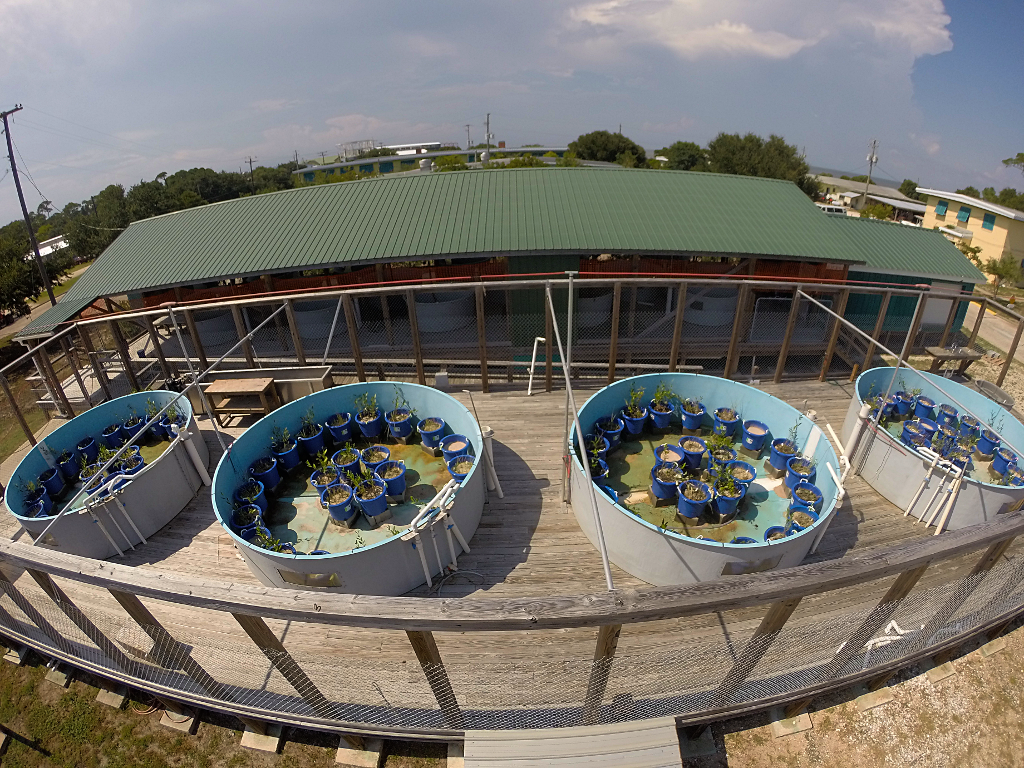

What are some of the tools that scientists use to answer questions through their research? In our Tool Talk series, we explain some of the common methods and technologies scientists are using to conduct ACER research. This week we look at What is a mesocosm?
You may have heard of the cosmos and maybe even a microcosm, and you may guess that meso means middle, so you might guess it’s something between the two…
and you would be right! In short, a mesocosm is a container for experiments that’s bigger than an aquarium, but smaller than the ocean.
When testing ideas with experiments, scientists have to balance control and realism. For example, if we wanted to measure the effect of nutrients on plant growth rates, we could carry out the experiments in the laboratory where we could control various factors such as temperature, light levels, watering regime, while varying nutrient levels. Our results would tell us about the specific growth rates at specific nutrient levels under these specific conditions but we would not be able to say with certainty what the growth rates would be for different conditions such as those that occurred in nature. However, if we conducted this same experiment in the field, we would not be able to control many of the factors important to plant growth during the experiment. Light levels, temperature, water supply or other factors may change and we would be unable to tease out the specific relationship between nutrient levels and plant growth. And yet, growth rates would have been measured under conditions reflecting the natural variation in these factors and be more representative of what actually occurs in nature. This balance of control and realism results in a prevalence of field experiments in some scientific disciplines and laboratory experiments in others.
One of the tools that scientists can use to balance these competing demands of control and realism are mesocosms. Essentially, mesocosms are intermediate sized experimental containers that are large enough to include elements of field realism, but small enough that some factors can be controlled. ACER scientists are using mesocosms at the Dauphin Island Sea Lab to test the effects of oil exposure on various organisms from plankton, to coastal marsh plants, to oysters and even fish.
